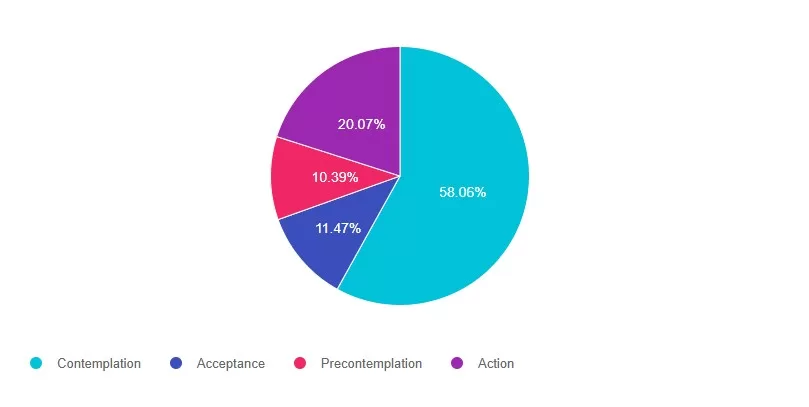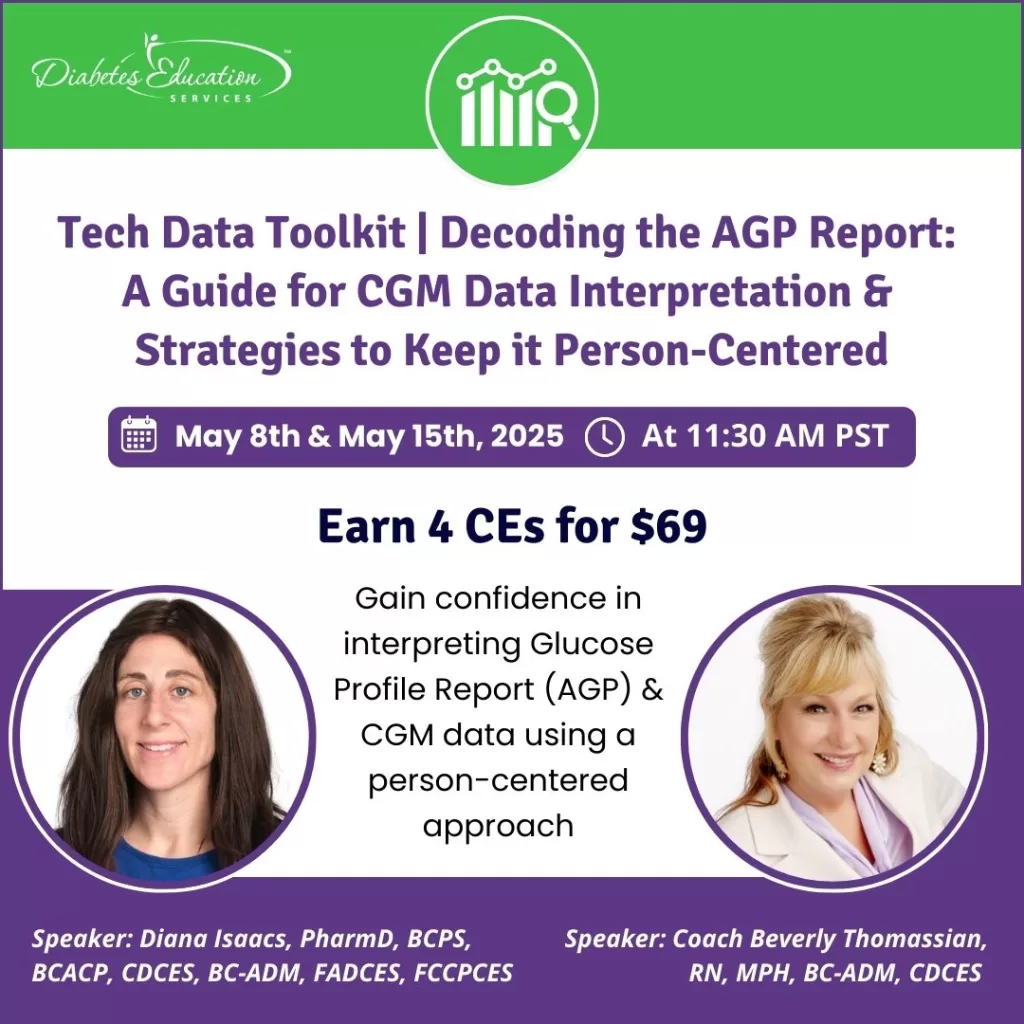For last week’s practice question, we quizzed participants on What Stage of Change? 58% of respondents chose the best answer. We want to clarify and share this important information, so you can pass it on to people living with diabetes and your colleagues, plus prepare for exam success!
Before we start though, if you don’t want any spoilers and haven’t tried the question yet, you can answer it below: Answer Question

BT was started on a GLP-1 and is losing weight. BT has read articles about the importance of strength training to maintain muscle. They ask you questions about whether using weights or resistance bands is better.
According to the transtheoretical model, what stage of change is BT in?
Answer Choices:
- Contemplation
- Acceptance
- Precontemplation
- Action

Getting to the Best Answer
Answer 1 is correct. 58% chose this answer, “Contemplation.” GREAT JOB! When people are in contemplation stage, they are aware of the need for change and are actively considering making a change within the next six months. They are weighing the pros and cons of changing their behavior. In this situation BT is contemplating two different approaches to strengthening exercises,
Answer 2 is incorrect. 11% of you chose this answer, “Acceptance.” Even though BT may be accepting the need to get active, acceptance is not one of the stages in the transtheoretical model. This was one of those juicy answers.: -)
Answer 3 is incorrect. About 10% of respondents chose this, “Precontemplation.” This answer is tempting, but in precontemplation, individuals are not yet considering changing behavior. They may be unaware of the need for change or may have a resistant attitude toward it. BT wants to increase activity, but is choosing between two strength training options.
Finally, Answer 4 is incorrect. 20% chose this answer, “Action.” This person is not quite at the action stage. Action is when Individuals are actively modifying behavior, implementing plans, and making observable changes in their behavior, environment, or lifestyle.
Watch our FREE webinar, Behavior Change Made Easy. Register Here >>
We hope you appreciate this week’s rationale! Thank you so much for taking the time to answer our Question of the Week and participate in this fun learning activity!
Join us for our upcoming Tech Data Toolkit Webinar!
Join us live on May 8th & May 15th!

Session 1 – May 8th
with Beverly Thomassian at 11:30am to 12:30pm PST
Session 2 – May 15th
with Dr. Diana Isaacs at 11:30am to 2:30pm PST
Gain confidence in interpreting Glucose Profile Report (AGP) & CGM data using a person-centered approach!
If you are preparing for certification exams or want to up your game using CGM data to improve outcomes, this course is for you.
We still have room available for the May 8th kick off date.
With diabetes technology entering all aspects of diabetes care, figuring out how to make sense of all the data can seem overwhelming. Join Diana Issacs and Coach Beverly for a truly unique learning experience. Dr. Isaacs has a special knack for breaking down the essential elements of the Ambulatory Glucose Profile (AGP) report to provide participants with a clear road map for data interpretation. She includes many sample practice cases utilizing CGM data for various types of people with diabetes including type 2 and people with type 1 not on pumps.
Coach Beverly will build on Dr. Isaacss’ presentation. She will expand the focus to include steps to collaborate with the person with diabetes. Using a case study approach, she will provide strategies to integrate the AGP with person-centered care that empowers individuals to experience increased confidence in their diabetes self-management.
By attending this interactive workshop, participants will become more confident in interpreting the AGP and continuous glucose monitor (CGM) data and determining needed medication and lifestyle adjustments with a person-centered approach.
Topics include:
Review CGM key metrics and individualize time in-range goals.
Learn how to recognize patterns with the AGP report efficiently.
Recommend lifestyle and medication adjustments based on CGM data.
Utilize the AGP report coupled with a person centered approach when meeting with a person with diabetes.
Sign up for Diabetes Blog Bytes – we post weekly Blog Bytes that are informative and FREE! Every week we post one exam practice Question of the Week and Rationale of the Week. Sign up below!
Recent Blog Bytes
- Rationale of the Week | Which Feature Most Strongly Supports a Diagnosis of HHS Rather Than DKA?
- How Not Winning Motivated Me to Write A Book
- Question of the Week | What Not to Say to Overwhelmed Individual
- February 2026 eNews
- Rationale of the Week | Best Response for Facilitating Positive Health Behavior Change?
The use of DES products does not guarantee the successful passage of the certification exam. CBDCE and ADCES do not endorse any preparatory or review materials for the CDCES or BC-ADM exams, except for those published by CBDCE & ADCES.









